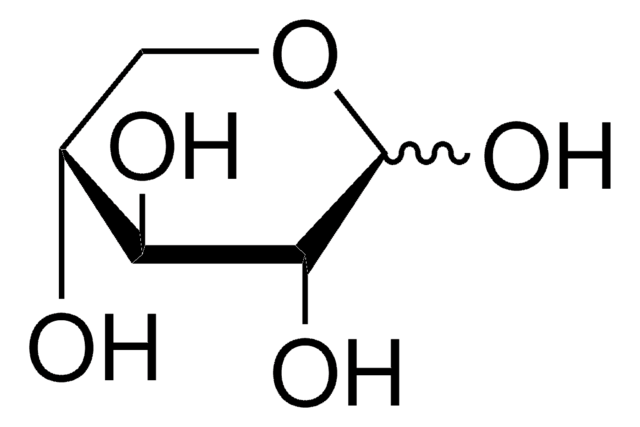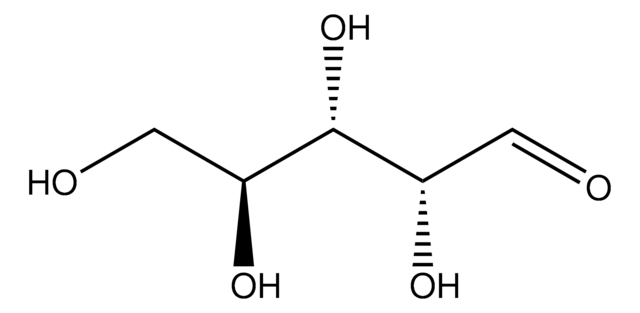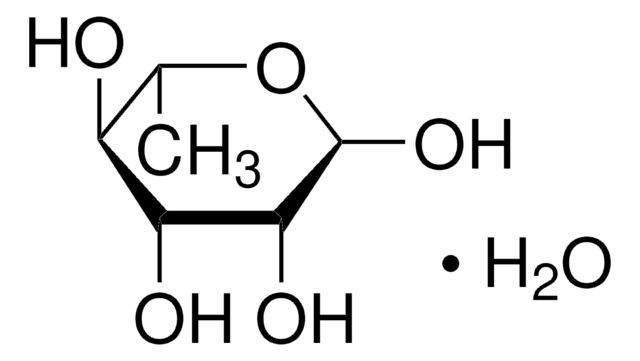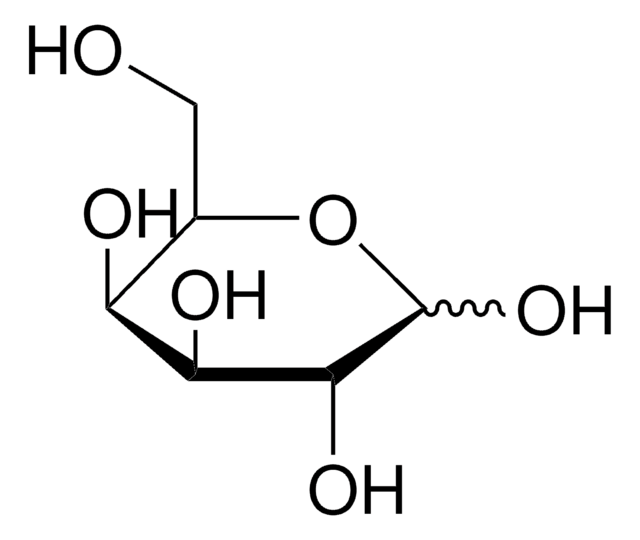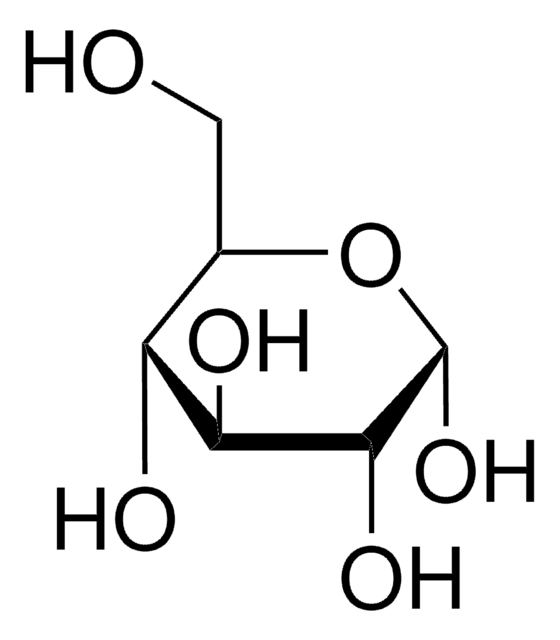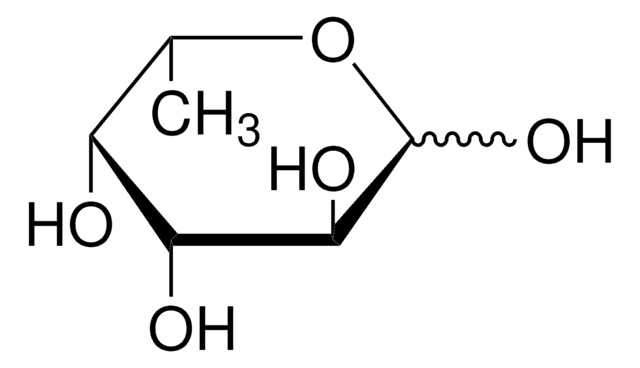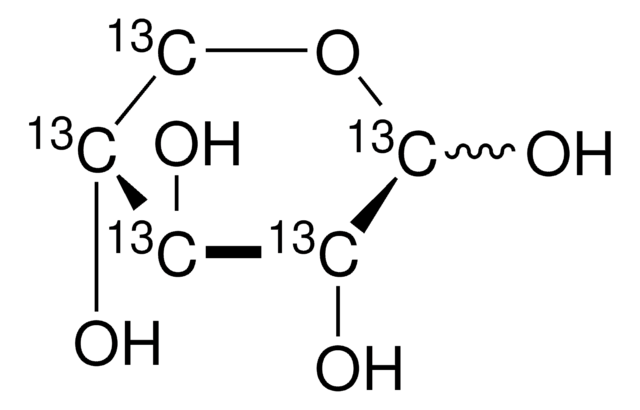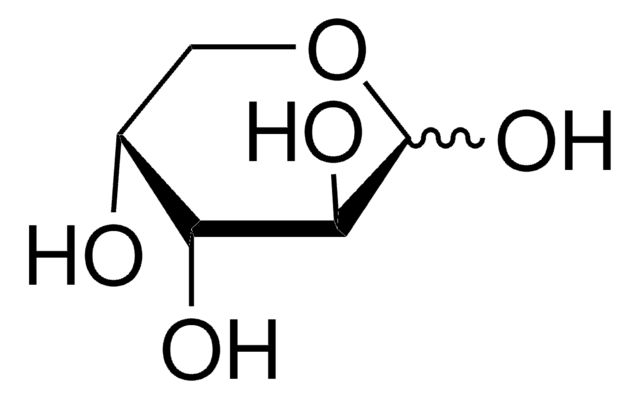About This Item
Recommended Products
biological source
cell culture
Quality Level
assay
≥99% (GC)
form
powder
optical activity
[α]20/D 18.2 to 19.4 °, c = 4% (w/v) in water
technique(s)
gas chromatography (GC): suitable
color
white
useful pH range
6.0-6.5 (20 °C, 100 g/L)
mp
154-158 °C (lit.)
solubility
water: 50 mg/mL, clear, colorless
storage temp.
room temp
SMILES string
O[C@@H]1COC(O)[C@H](O)[C@H]1O
InChI
1S/C5H10O5/c6-2-1-10-5(9)4(8)3(2)7/h2-9H,1H2/t2-,3+,4-,5?/m1/s1
InChI key
SRBFZHDQGSBBOR-IOVATXLUSA-N
Looking for similar products? Visit Product Comparison Guide
Related Categories
General description
Application
- as one of the component to stimulate microbial activity
- for the enhancement of biofilm formation
- as a part of biochemical tests for the identification of B. cereus group
- for substrate screening characterization
Biochem/physiol Actions
Quality
Other Notes
Storage Class
11 - Combustible Solids
wgk_germany
WGK 1
flash_point_f
Not applicable
flash_point_c
Not applicable
ppe
Eyeshields, Gloves, type N95 (US)
Choose from one of the most recent versions:
Certificates of Analysis (COA)
Sorry, we don't have COAs for this product available online at this time.
If you need assistance, please contact Customer Support.
Already Own This Product?
Find documentation for the products that you have recently purchased in the Document Library.
Customers Also Viewed
Our team of scientists has experience in all areas of research including Life Science, Material Science, Chemical Synthesis, Chromatography, Analytical and many others.
Contact Technical Service